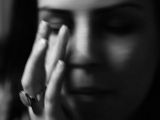The general opinion says that adults recall better than children negative events, as they are more likely to react rationally. A new Cornell study published online in the Journal of Experimental Child Psychology, presents evidence that contradicts this belief.
Charles Brainerd and Valerie Reyna, professors of human development and co-authors of “The Science of False Memory” (2005), carried out this study that, they say, has serious implications for the criminal justice system. Their research shows that negative events are more likely to cause distorted and false memories in adults than in children.
For study purposes, experiments were conducted at Cornell's Memory and Neuroscience Laboratory. They proved that events related to negative emotions have a tendency of deforming children's memories, and that recalling consequences were even worse in adults. A negative emotional experience triggers very low true memory levels and high false memory levels.
In this research were involved children 7 and 11 years old and young adults ages 18-23. The experiment consisted in showing subjects lists of closely related emotional words, with some related words missing in every list (cut,injury, pain, ouch, cry with the word “hurt” missing). When asked to remember words from the list, subjects would falsely remember the missing word (“hurt”) as being part of the list. The answers allowed scientists to determine the degree of false memories induced by emotions at every age.
Brainerd said: “We found something different than what leading theories of emotional memory in adults say - “When you're involved in a very negative experience of some sort, like a crime, it focuses your mind, and you really pay attention to details.” But our research showed that exactly the opposite is true. By manipulating the emotional content of word lists, we found that materials that had negative emotional content in fact produced the highest levels of false memory. And when you add arousal to the equation, memory was distorted more.”
These findings are crucial for the legal system, because very few accusations are based on forensics expertise. “In the great preponderance of legal cases,” Brainerd said, “the only evidence that's determinative is what people say happened. That's it. So the question of the conditions under which your memory of events is distorted is the most fundamental question about the reliability of evidence - because it is most of the evidence.”
“One of the main reasons why people look at memory and memory distortion is the legal connection," Brainerd added. “In the law, you're dealing with events that are emotional. So the question of whether or not the emotional content of experiences that you're trying to remember screws up your memory is a really big question.”

 14 DAY TRIAL //
14 DAY TRIAL // 
